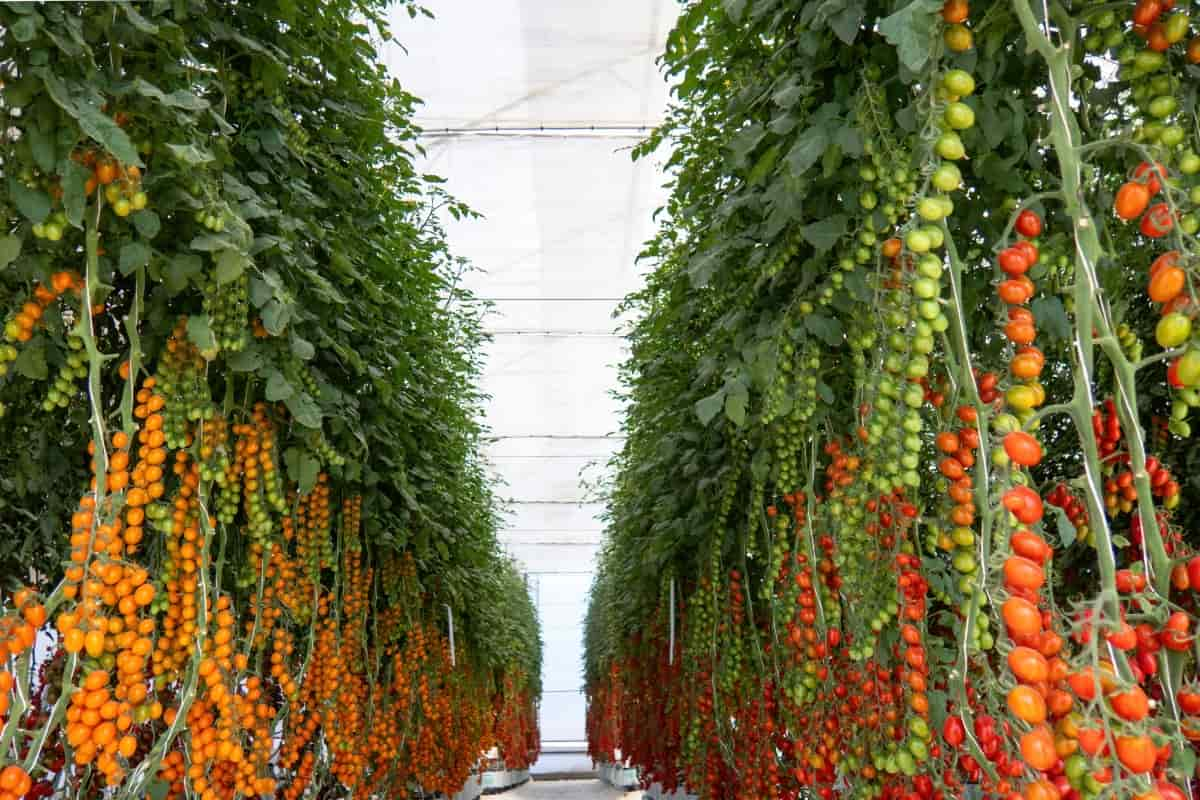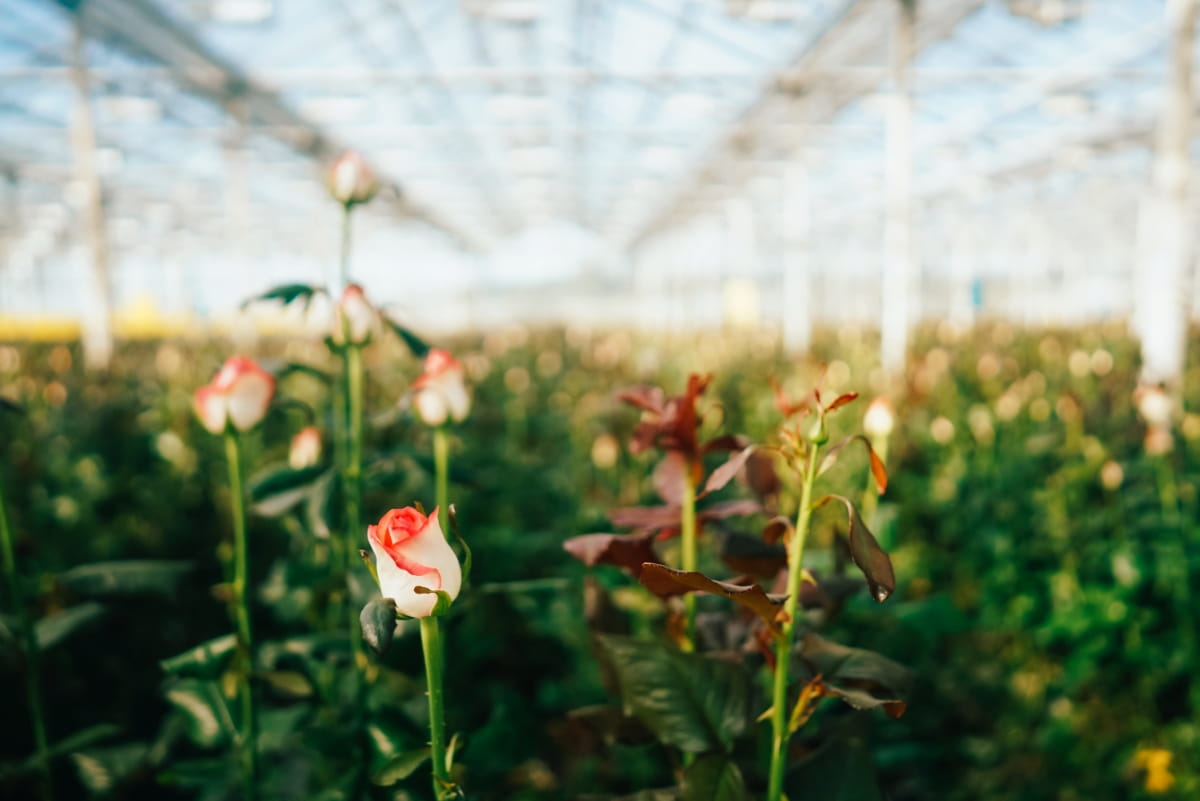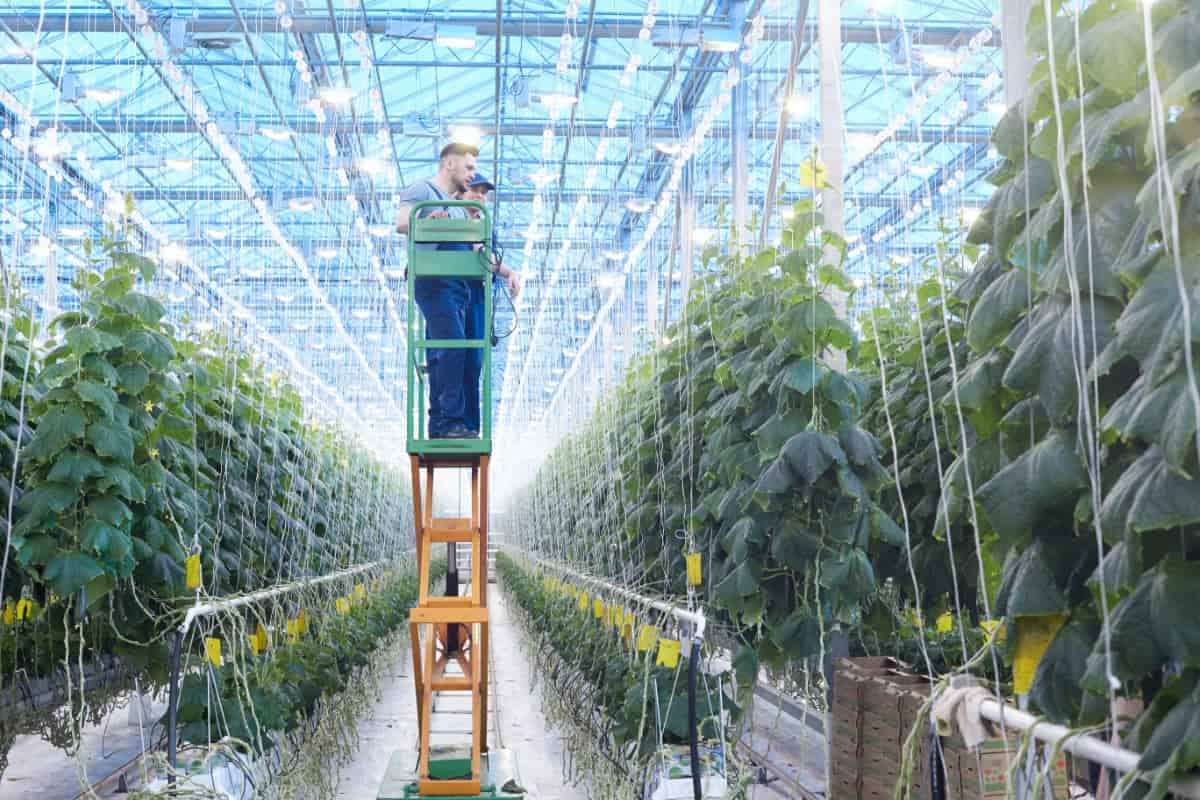The rise of contract farming has offered promising solutions for the sustainable growth of the agriculture sector. As a win-win proposition, it ensures reliable supply to the buyer while providing a stable income to the farmer. Contract farming in the realm of greenhouse vegetables and flowers has made significant strides recently.

This sector’s growth can be largely attributed to its potential to counter the unpredictability of open-field farming, owing to the tightly controlled conditions within the greenhouse. This article provides a comprehensive overview of greenhouse vegetables and flower contract farming, exploring its benefits, potential risks, and ways to manage them.
Contract Farming for Greenhouse Vegetables and Flowers
Overview
Greenhouse contract farming is the collaborative undertaking between farmers and buyers wherein farmers agree to produce specific greenhouse crops like vegetables or flowers, and the buyers agree to purchase the yield at pre-agreed prices. This kind of contract farming has seen a resurgence due to the increasing popularity of greenhouse farming, which provides a more controlled environment for crop growth.
Greenhouses are particularly useful in creating an optimal environment for the growth of temperature-sensitive crops, such as certain vegetables and flowers, which may not otherwise thrive in the open field. The contract typically outlines the specific quality and quantity of the product, delivery schedules, and prices, thus allowing both parties to plan and budget effectively.
From the farmer’s perspective, it gives them an assurance of a stable market and a guaranteed price, reducing the risk of price fluctuations and market supply. From the buyer’s perspective, contract farming ensures a steady supply of the required product, reducing the dependence on spot market purchasing, which can often be unreliable and expensive.
Advantages of Greenhouse Contract Farming
Greenhouse contract farming comes with a host of advantages. For one, it offers a controlled and stable environment for growing vegetables and flowers, reducing the risk of crop failure due to unpredictable weather patterns, pests, or diseases. The assurance of a pre-determined market and price offered by contract farming also helps farmers access credit and other financial services since they have a guaranteed income source.
This stability often allows farmers to invest more heavily in their operations, potentially improving their yield and quality further. Contract farming ensures the reliable, timely delivery of fresh produce for buyers, such as grocery chains, florists, and restaurants. Moreover, it facilitates traceability, allowing them to confidently assure customers about the source and quality of their products.
Challenges in Greenhouse Contract Farming
While the benefits are manifold, it’s also important to acknowledge the potential challenges in greenhouse contract farming. One of the key challenges lies in balancing the contractual obligations between the farmer and the buyer. Farmers may encounter challenges in fulfilling contractual obligations due to unexpected events like a sudden pest outbreak or greenhouse equipment failure. On the other hand, buyers could potentially exploit their power by altering contract terms or failing to purchase agreed quantities.
In case you missed it: Creating a Solid Greenhouse Farming Business Plan: For More Yields and Profit

Another challenge is the initial investment required for setting up greenhouses. This cost can be prohibitive for small-scale farmers, even though the potential for higher yields and prices may make it a worthwhile investment in the long run. Additionally, the complexity of greenhouse operations, requiring knowledge about temperature control, pest management, and other technical aspects, might pose a challenge for farmers unfamiliar with such systems.
Managing the Challenges: Towards a Sustainable Model
Managing these challenges requires a multi-pronged approach, combining efforts from individual farmers, cooperatives, government bodies, and private sector players. Fair and transparent contracts, which clearly outline the responsibilities and obligations of both parties, are crucial to prevent exploitation. Regular communication and dispute-resolution mechanisms can further help in dealing with unexpected issues.
In the form of subsidies or affordable credit, government support can significantly reduce the initial cost of setting up a greenhouse, making it more accessible for small-scale farmers. Private companies could also consider providing financial assistance or setting up shared greenhouse facilities for a group of farmers, which would also mitigate the risk for individual farmers.
Regarding operational challenges, training programs focusing on the specific needs of greenhouse farming could significantly improve farmers’ skill sets. By educating them on best practices in temperature control, pest management, crop rotation, and other aspects, these programs can help optimize productivity and maintain produce quality.
Cooperatives can play a critical role in supporting individual farmers. By pooling resources, they can help farmers share the costs and risks associated with greenhouse farming. Moreover, cooperatives can also provide a platform for farmers to share knowledge and best practices, thereby improving overall productivity and sustainability of operations.
Potential Impact on Global Food Security
With the rapidly growing global population, increasing pressure on limited arable land, and the effects of climate change, food security has become a paramount concern. In this context, greenhouse vegetables and flowers contract farming could contribute significantly to global food security. Greenhouses provide a controlled environment for crop growth, independent of weather conditions, allowing for year-round production. This increases the overall output and reduces dependency on seasonal crops.
This could be the key to ensuring a steady food supply in regions with adverse climatic conditions. The scalability of greenhouses also makes them a viable solution for urban farming, thereby contributing to food security in urban areas. With the rapid rate of urbanization, the demand for fresh produce in cities is increasing. Contract farming of greenhouse vegetables can meet this demand effectively, reducing the need for long-distance transportation and associated costs and carbon emissions.
In case you missed it: Frequently Asked Questions About Greenhouse Farming

Regarding flower production, greenhouses offer the opportunity to cultivate high-value flowers for export, which can significantly boost a country’s economy. This could also provide an alternative income source for farmers, especially in developing countries, where agriculture is often the mainstay of the economy.
Conclusion
Greenhouse vegetables and flowers contract farming hold immense potential for the future of agriculture. The benefits, ranging from higher and consistent yields to assured markets and prices, make it an attractive proposition for farmers and buyers. While the challenges are considerable, with a concerted effort from all stakeholders, it is possible to mitigate these risks and create a sustainable model.
- Feed Your Flock for Less: Top 10 Tips to Save on Chicken Feed
- Ultimate Guide to Ossabaw Island Hog: Breeding, Raising, Diet, and Care
- Hatching Answers: The Top 10 Reasons Your Chickens Aren’t Laying Eggs
- Eggs and Economics: Breaking Down the Cost of Raising Backyard Chickens
- Defend Your Greens: Proven Methods to Keep Iguanas Out of Your Garden
- Ultimate Guide to Cinnamon Queen Chicken: A Comprehensive Guide for Beginners
- Ultimate Guide to California Tan Chicken: Breeding, Raising, Diet, Egg-Production and Care
- Ultimate Guide to Marsh Daisy Chicken: Breeding, Raising, Diet, and Care
- 10 Types of Chicken Farming Businesses You Can Start for Profits